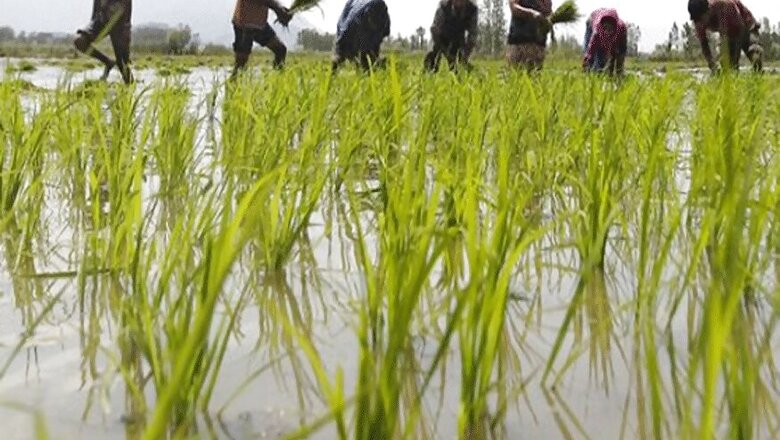
views
New Delhi: From Mandsaur in Madhya Pradesh to Nashik in Maharashtra to Sikar in Rajasthan and most recently the voter outrage against the BJP in rural Gujarat — farm distress emerged as the biggest threat to economic as well as political stability in 2017. Amid reports that agriculture will be the top focus of Budget 2018, the Narendra Modi government, in consultation with states, is planning to launch a new price support scheme for farmers to prevent distress sales at rates below the minimum support price (MSP).
Under the proposed ‘market assurance scheme’, states will be free to procure all crops from farmers for which MSPs are announced, except rice and wheat. Under the new scheme, the Centre will reimburse states for any losses capped at 30% of the procurement cost.
The proposed scheme will ensure an assured price for the producer, mitigating the price risks faced by farmers after harvest.
States will have to take ownership of the scheme, including which crop to procure and in what quantities. State governments will be free to use the procured crops for targeted nutrition-support programmes such as mid-day meals for schoolchildren, or sell them in the open market.
The Economic Advisory Council to the Prime Minister (EAC-PM) in its third meeting on Thursday under the chairmanship Bibek Debroy deliberated on issues of employment and agriculture with special focus on coming up with a policy on farm income.
“Farm income which includes providing proper remunerative prices to farmers and ensuring crop security is going to be a primary agenda in the days to come,” said a member of the committee under conditions of anonymity.
The NITI Aayog made presentations on options to enhance agri-productivity and the rural minister made presentations on Antyodaya mission for poverty-free panchayats.
Eight states are slated to go for elections next year. On being asked whether multiple elections next year will impact policymaking, the member under said, “It surely will. But that is the government’s prerogative… we are an advisory committee. We only suggest ideas.”
The proposed scheme comes in the backdrop of the record harvest of cereals and pulses in 2016-17, which led to wholesale prices plunging below MSPs. The price crash led to protests by farmer groups across the country since June, with demands for remunerative crop prices and loan waivers.
While states such as Uttar Pradesh, Maharashtra, Punjab and Karnataka have announced farm loan waivers that are at different stages of implementation, states like Madhya Pradesh have launched their own price support schemes for farmers growing pulses and oilseeds.



















Comments
0 comment